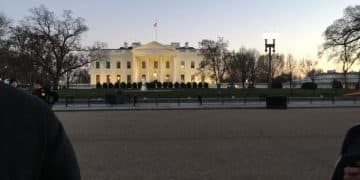Balancing Act: US-Saudi Ties & Human Rights Concerns

Balancing its strategic alliance with Saudi Arabia and upholding human rights values presents a complex challenge for the US, requiring nuanced diplomacy, strategic recalibrations, and a commitment to promoting reforms while addressing geopolitical realities.
The relationship between the United States and Saudi Arabia is a complex tapestry woven with threads of strategic alliance, economic interests, and, increasingly, human rights concerns. Navigating this intricate dynamic requires a delicate balancing act, as the US seeks to uphold its values while maintaining stability in a volatile region. How will the US balance its relationship with Saudi Arabia and human rights concerns in the coming years?
Navigating the US-Saudi Relationship: A Complex Equation
The longstanding partnership between the United States and Saudi Arabia has been a cornerstone of geopolitical stability in the Middle East for decades. However, this alliance is increasingly strained by concerns over human rights issues within Saudi Arabia. Understanding the historical context and the various factors influencing this relationship is crucial to analyzing potential pathways forward.
The US relies on Saudi Arabia for energy security, counterterrorism cooperation, and regional stability. However, these strategic interests are often at odds with the US commitment to promoting human rights and democratic values around the world.

The Kingdom’s Human Rights Record: A Point of Contention
Saudi Arabia’s human rights record has been a source of ongoing tension in its relationship with the US. The kingdom has faced criticism for its restrictions on freedom of speech, assembly, and religion, as well as its treatment of women and minorities.
Several specific issues have drawn international condemnation and put pressure on the US to take a stronger stance, and there are numerous points that need to be adressed:
Key Human Rights Issues in Saudi Arabia
- Freedom of Expression: Saudi Arabia heavily restricts freedom of expression, with strict laws against criticizing the government or religious authorities.
- Women’s Rights: While some progress has been made in recent years, women in Saudi Arabia still face significant legal and social discrimination.
- Political Freedoms: The kingdom does not allow political parties or independent civic organizations, and political dissent is often met with harsh punishment.
These human rights concerns have led to calls for the US to reassess its relationship with Saudi Arabia and to condition its support on improvements in these areas.
In conclusion, the human rights record in Saudi Arabia remains a significant point of contention in its relationship with the US, creating a need for the US to balance its strategic interests with its commitment to promoting human rights.
Strategic Imperatives: Why the US Needs Saudi Arabia
Despite human rights concerns, the US maintains a strategic relationship with Saudi Arabia due to several key factors. These include energy security, counterterrorism cooperation, and Saudi Arabia’s role in regional stability.
The US relies on Saudi Arabia as a major oil producer to help stabilize global energy markets. Additionally, the two countries have a history of cooperation in combating terrorism, with Saudi Arabia being a key partner in efforts to counter extremist groups.

Saudi Arabia’s Role in Regional Security
- Countering Iran: Saudi Arabia is a key ally in countering Iran’s influence in the region.
- Combating Terrorism: The kingdom provides valuable intelligence and support for counterterrorism efforts.
- Stabilizing Yemen: Saudi Arabia plays a significant role in the ongoing conflict in Yemen.
These strategic imperatives make it difficult for the US to completely distance itself from Saudi Arabia, even in the face of human rights concerns.
In closing, the US maintains a strategic partnership with Saudi Arabia due to its importance in energy security, counterterrorism, and regional stability, despite ongoing human rights concerns.
Tools for Promoting Human Rights: Diplomacy and Sanctions
The US has several tools at its disposal for promoting human rights in Saudi Arabia, including diplomacy, sanctions, and arms sales restrictions. Each of these tools has its own advantages and limitations.
Diplomacy is often seen as the most effective way to engage with Saudi Arabia and encourage reforms. This can involve direct dialogue with Saudi officials, as well as public statements and resolutions condemning human rights abuses.
The Use of Sanctions and Restrictions
Sanctions and arms sales restrictions can be used to pressure Saudi Arabia to improve its human rights record. However, these measures can also have unintended consequences, such as harming the Saudi economy or undermining US strategic interests. When it comes to applying such measures, it is important to note the various effects:
- Targeted Sanctions: The US can impose sanctions on individuals and entities responsible for human rights abuses.
- Arms Sales Restrictions: The US can restrict the sale of weapons to Saudi Arabia, particularly those that could be used to commit human rights abuses.
Striking the right balance between these tools is crucial to achieving meaningful progress on human rights in Saudi Arabia without jeopardizing US strategic interests.
In conclusion, the US has a range of tools for promoting human rights in Saudi Arabia, including diplomacy, sanctions, and arms sales restrictions, each with its own strengths and limitations.
The Role of Public Opinion and Advocacy Groups
Public opinion and advocacy groups play a crucial role in shaping US policy towards Saudi Arabia. Increased awareness of human rights issues in the kingdom has led to growing calls for the US to take a stronger stance.
Human rights organizations, journalists, and activists have been instrumental in documenting and publicizing human rights abuses in Saudi Arabia. This increased scrutiny has put pressure on the US government to address these issues more forcefully.
How Advocacy Groups Shape Policy
- Lobbying: Advocacy groups lobby Congress and the executive branch to push for specific policies.
- Public Awareness Campaigns: They conduct public awareness campaigns to educate the public about human rights issues in Saudi Arabia.
- Legal Action: Some groups pursue legal action against Saudi officials and entities accused of human rights abuses.
By amplifying the voices of victims and holding Saudi Arabia accountable for its actions, public opinion and advocacy groups can help to shape US policy and promote meaningful reforms.
In conclusion, public opinion and advocacy groups play a vital role in shaping US policy towards Saudi Arabia, amplifying the voices of victims and advocating for human rights reforms.
Potential Scenarios: Future of US-Saudi Relations
The future of US-Saudi relations is uncertain, with several potential scenarios depending on how the US chooses to balance its strategic interests and human rights concerns. These scenarios range from a continuation of the current relationship to a significant downgrading of ties.
One possibility is that the US will continue to prioritize its strategic alliance with Saudi Arabia, focusing on areas of mutual interest such as energy security and counterterrorism. In this scenario, human rights concerns would likely take a backseat.
Possible Future Scenarios
- Continued Alliance: The US maintains a close strategic alliance with Saudi Arabia, with limited emphasis on human rights.
- Conditional Support: The US conditions its support for Saudi Arabia on improvements in human rights.
- Downgraded Ties: The US significantly downgrades its relationship with Saudi Arabia due to human rights concerns.
Ultimately, the future of US-Saudi relations will depend on the choices made by both countries and the willingness of each side to address the concerns of the other.
To summarize, the future of US-Saudi relations involves several potential scenarios, dependent on the balance the US strikes between strategic interests and human rights concerns, ranging from maintaining a close alliance to downgrading ties.
Finding a Sustainable Path: Balancing Interests and Values
Finding a sustainable path forward in the US-Saudi relationship requires a delicate balance between strategic interests and human rights values. This will likely involve a combination of diplomacy, targeted sanctions, and public pressure to encourage reforms within Saudi Arabia.
The US can use its influence to push for specific human rights improvements in Saudi Arabia, such as greater freedom of expression, protection for women and minorities, and accountability for human rights abuses. However, this must be done in a way that does not undermine US strategic interests or destabilize the region.
The United States needs to adopt policies that promote human rights while protecting American interests, especially in geopolitically turbulent areas. These tactics include promoting freedom of expression, defending women and minorities’ rights, and demanding accountability for human rights violations. At the same time, the strategy must be mindful of the intricate relationships with Saudi Arabia that exist regarding counterterrorism, regional stability, and energy security. It might be necessary to promote reforms in Saudi Arabia without undermining the region’s stability or endangering America’s strategic goals.
Advancing long-term reforms that are in line with American beliefs requires a multifaceted strategy. It is critical to maintain open communication channels in order to discuss areas of shared interest and to express concerns regarding human rights. To encourage change, targeted sanctions against those responsible for egregious offenses and public condemnations of violations may be used as leverage. It is also crucial to ensure the stability of the area and to uphold global security. This calls for a thoughtful assessment of the consequences of any US policy and a focus on long-term advancement rather than short-term gains.
In conclusion, by striking the right balance between its strategic interests and its commitment to human rights, the US can help to shape a more positive future for Saudi Arabia and the broader Middle East. And one thing is certain:
- The alliance with Saudi Arabia will remain a cornerstone of regional stability, counterterrorism and energy security.
- The US will keep an eye on and push for greater human rights and accountability.
- The future trajectory of the US-Saudi relationship will demand cautious policy-making, consistent diplomacy, and a dedication to promoting human rights while protecting the legitimate security interests of the United States.
| Key Point | Brief Description |
|---|---|
| 🤝Strategic Alliance | US relies on Saudi Arabia for energy security and counterterrorism. |
| ⚖️Human Rights | Saudi Arabia faces criticism for restrictions on freedoms. |
| 📢Advocacy | Public opinion and groups shape US policy towards Saudi Arabia. |
| 🌍Future Scenarios | Options range from continued alliance to downgraded ties. |
Frequently Asked Questions
▼
The US is allied with Saudi Arabia due to strategic interests, including energy security, counterterrorism cooperation, and regional stability. Saudi Arabia is a major oil producer and a key partner in combating terrorism.
▼
The main human rights concerns in Saudi Arabia include restrictions on freedom of expression, assembly, and religion, as well as discrimination against women and minorities. The kingdom also faces criticism for its use of the death penalty.
▼
The US has several tools at its disposal, including diplomacy, sanctions, and arms sales restrictions. Diplomacy involves direct dialogue with Saudi officials, while sanctions and arms sales restrictions can be used to pressure Saudi Arabia to improve its record.
▼
Advocacy groups influence US policy through lobbying, public awareness campaigns, and legal action. These groups amplify the voices of victims and hold Saudi Arabia accountable for its actions, putting pressure on the US government.
▼
Potential future scenarios include a continuation of the current alliance, conditional support based on human rights improvements, or a significant downgrading of ties. The future trajectory will depend on decisions made by both countries.
Conclusion
In conclusion, the relationship between the US and Saudi Arabia stands at a crossroads, demanding a strategy in which the US protects values and strategic interests while advancing long-term stability in the Middle East. The future trajectory of this crucial alliance hinges on each country’s ability to address the other’s concerns.





